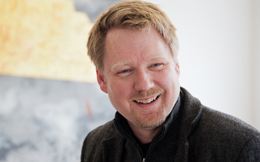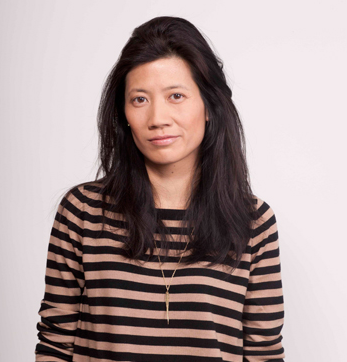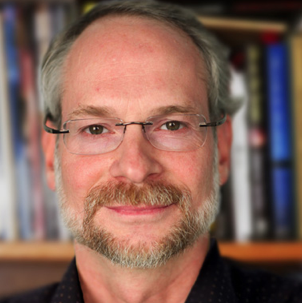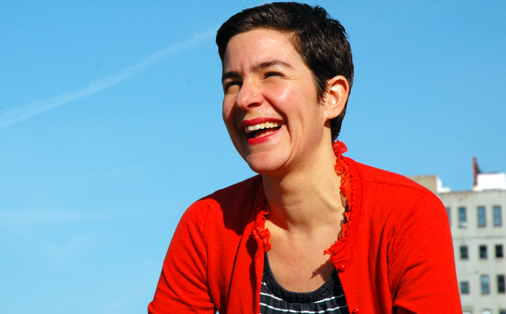
You’ve chosen an uncertain path.
You’ve adopted an inconvenient lifestyle.
You’ve embarked upon an unconventional journey.
You’ve felt the voice inside you growing more urgent.
You’ve committed yourself enough so you can’t turn back.
IN SHORT: You’ve decided to play for keeps.
This is the critical crossroads – the emotional turning
point – in the life of every young artist.
And I’ve been there
myself.
Here’s a list of suggestions to help you along the
way:
1. It’s hard to be creative alone. First,
without people to bounce our ideas off of, it’s like playing basketball without
a backboard. Hitting nothing but net is hard to do every time. Second, when
working in isolation, out of context, trapped in our own head, there’s only so
much perspective we can bring to our work. Third, without a strong sense of we,
without a real connection to the human family, we can’t access the full
potential of networked knowledge. Fourth, without access to each other, without
regular exposure to other ways of being, our work remains myopic and
untextured. Fifth, without
collaborating with and enlisting support from others, executing broader
projects is a futile endeavor. The upside is, we are never alone in this world
unless we want to be. Sometimes all we have to do is extend our arm. Which is
hard. It makes us vulnerable and out of control. And it forces us to depend on
someone beside ourselves. But anything worthwhile depends on other members of
our species. Who do you play ball with?
2. Chaos
isn’t a merit badge. You don’t need to keep reminding me how busy you are.
The fact that you’re overextended, booked solid and barely able to juggle all
the craziness that is your very important life, doesn’t impress me. What does
impress me is when you ship. Execution is
the measure of man, not bravado. If you’re inventing things to outsource to
preserve the illusion of productivity, we’re not interested. If you’re wearing
busyness as a badge of honor to inflate your ego, we’re not interested. And if
you’re spending your time convincing competitors that you’re busier than you
really are instead of creating work that matters, we’re not interested. Let
your work do the talking, not your words. Are
you spending your time creating work that matters or convincing your
competitors that you’re busier than you really are?
3. Evolution is inevitable. If our work is the same it was a year ago, if
what we do hasn’t evolved with who we are, we’re in trouble. Some of us fail to
renew because we’re lazy. Others because we’re comfortable with the current
level of our success and don’t want to let go of what’s working. Some fail to
renew because we don’t think we need to evolve. And some of us fail to renew
because we don’t think renewal is necessary to become great. But more often
than not, we fail to renew because we fail to reflect. We fail to renew because
we’re so busy with the day to day, wrapped up in the demands of the
marketplace, that we forget to take time to step back from the work and ask
ourselves what the work is evolving into. And as a result, we become prisoners
of our own labors. Instigating a process of renewal is so essential. Without
it, we don’t just grow stale, we grow cynical as we watch the evolvers pass us
by. Are you telling the same story just
because you know it’s guaranteed to get applause?
4. Nothing
lives once anymore. Thanks to the beauty of the web and its abundance of
access to the otherwise unattainable, any art we create – and openly share –
has infinite shelf space, unlimited airtime and endless viewership. In one
click, our work can live online, in perpetuity, for anyone in the world to experience,
for free, forever. This is the best thing that ever happened to us. For the
first time in history, there are no walls. No boundaries separating creators
from consumers. No permission police preventing us from sharing the things we
love. It’s one big transcontinental farmer’s market that never shuts down. Even
better, we live in the age of the remix. Consider Shepard Fairey’s famous
campaign poster for Barack Obama: It
became instantly iconic not because it was brilliant – but because it was
mixable. Originally, Shepard only sold a few hundred posters on the street
the day it was printed. But once he converted his art into a digital image and
invited other artists to create variations, parodies and imitations of his work
– also known as communal recreation –
the poster earned instant recognition. He made history because he bravely
stepped back, let evolution do what it did best. Will you enabled your art to live more than once?
5.
Originality isn’t about content, it’s about movement. If the work
pushes us forward as human beings, it’s original. True creativity,
unprecedented or not, will always result in change. You
could argue that Glee isn’t original. It’s just another comedy drama about
teenage angst with standard issuehigh school
archetypes, cliché storylines and perfectly choreographed cover songs. Then
again, Glee gives voice to the bullied and misunderstood. They
ask questions the public is afraid to confront. They put a human face to
cultural taboos like religion and sexuality. They bring social justice to the
forefront of popular culture. And they show us that we don’t have to be weird
alone. Maybe they’re singing an original song after all. Do you need to be original or in motion?
6. Make
room for the new. Humans have a built in reluctance to let go of what’s
working. Because it means we’re no longer
in control. Worse yet, it means we have to trust ourselves, trust the
process of change and trust whatever result emerges. Yikes. The advantage is, when we bow to the
door of next, when we tear ourselves away from the safe harbor of certainty and let go of who we are, we become who we
need to be. A few months after Seinfeld
went off the air, Jerry recorded a live comedy special in which he vowed never
to use old material again. He even opened the program with a mock funeral
scene, literally burying stacks of paper in the dirt while celebrity graveside
mourners wept along with him. Because he didn’t want to be a new guy doing the
old guy’s act. Interestingly, Jerry’s special was nominated for a Grammy. Talk
about a punchline. Sometimes we have to let go of what’s working today to make
room for what needs to happen tomorrow. Sometimes we have to operate from the
edges to allow the truest, freshest expression of ourselves to emerge. Are you making a joke or making history?
REMEMBER: When you’re ready to play for keeps, your
work will never be the same.
Make the decision today.
Show the world that your art isn’t just another expensive
hobby.










